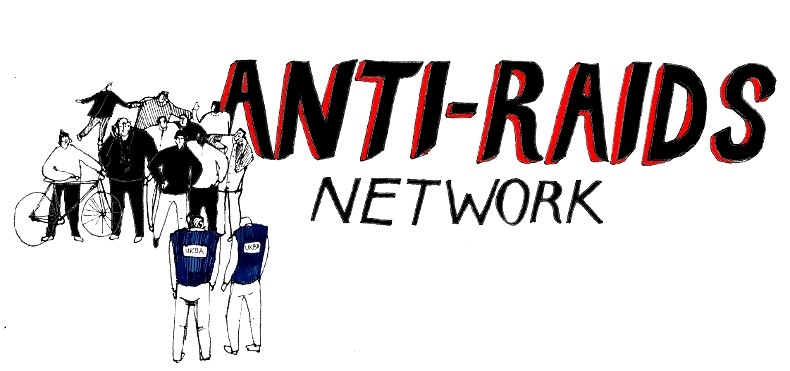Building an anti-fascist culture post-Brexit
This text was written by some people involved in the Anti Raids Network – it doesn’t represent the position of the whole network.
A vast amount has already been said about ‘Brexit’ and the general climate of nationalism and xenophobia in which the vote took place. We want to concentrate on where we can go from here. Between rising fascism on the one hand, and despair on the other, we think it’s essential we build a culture of anti-fascism based on solidarity and autonomy. Solidarity here means taking action to support each other against those who seek to impose their authoritarian and racist ideal of a uniform society. Autonomy means unlearning our habit of looking to leaders for solutions, and taking the initiative to organise for ourselves.
For our anti-fascism to be meaningful and effective, we feel that it should follow a few basic principles:
It should be decentralised & grassroots
Rather than searching for the next political party/saviour figure/controlling coalition to dictate our direction and tactics, now really is the time for each of us who identify with anti-fascist position have the courage and commitment to take the initiative. Seek out and get involved in local groups, or better still, start your own*. Our groups and actions should multiply, not massify, and with this carry the crucial idea that anyone can be part of this struggle.
It should target all forms of nationalism & xenophobia – from the street to the state
We need to think creatively about how to effectively counter nationalist groups taking to the streets, but it is critical that we do not neglect the ‘respectable’ xenophobia of the suit-wearing demagogues in power and those who carry out their commands. Both these groups reinforce one another, with politicians normalising such practices as deadly border controls and the daily round-up of migrants from our neighbourhoods, while street groups and keyboard warriors garner citizen-support for these right wing agendas and demand that they be taken to more extreme levels.
It should be braver
Too often, we respond to the latest oppressive state action or policy by seeking the validation of our friends and comfortable social media ‘scene’, rather than taking action. Instead of seeking solace from Twitter, why not go out and put up some posters? We also need to challenge ourselves to get out of our comfort zones, and not leave risky actions to some mythical ‘others’, who have no responsibilities or cause to fear repression. Of course, there are some who face more severe reprisals due to issues such as their immigration status, race or class – but anti-fascism wouldn’t be called a struggle if it didn’t carry any risk. When the time comes to hold the line, we need to be there for each other.
It should be creative
At the same time, conflict cannot be sustained without a broader culture to nourish it. This struggle is not simply about the defeat of an authoritarian ideology; we also have to show an alternative form of power – the power of solidarity and real community. Our culture should carry the seeds of a new society, another way of life, and not be purely orientated towards what we oppose.
It should be multiform
…postering, organising cultural events, blocking immigration vans, leafletting, graffiti, running DIY martial arts clubs, neutralising nazis on the streets, sabotaging deportation attempts, giving workshops and skillshares, supporting resistance in detention, running regular stalls, making anti-fascist art and music, mobilising against evictions, taking direct action against the peddlers of nationalism and bigotry…… building an anti-fascist culture takes these forms and many more. We should recognise the value of all these actions and encourage & support different people’s contributions according to their interest and skills.
These are just a few possible guidelines for what we hope will be a fiery, emancipatory, and truly grassroots resistance that can be our only response to the shackles of nationalism, borders, and state control.
—
*If you would like to act against immigration raids in London, check out our statement of principles and feel free to visit your nearest anti raids stall (times correct at the time of writing):
- Deptford market, 12-2pm on Saturdays: deptford-antiraids [at] riseup.net
- Rye Lane, Peckham, 12-2pm on Saturdays: antiraids [at] riseup.net
- Whitechapel Market, 2-4pm on Saturdays: whitechapelantiraids [at] riseup.net
See here for more ideas for what you can do to fight the raids.




